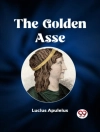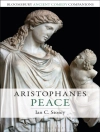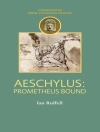Xenophon was acknowledged in Antiquity as a philosopher, a historian (third in the triad of great Classical historians, alongside Herodotus and Thucydides), and a literary artist. His narrative was appreciated for its literary qualities including its charm, wit, vigour, and sweetness (for which he was hailed as ‘Attic Muse’: Diogenes Laertius, 2.6.57). The Oeconomicus describes Socrates conversing on the topic of successful management of one’s oikos (household, estate). The focus is a well-to-do Athenian household, which proves a testing ground for the moral qualities or ‘gentlemanliness’ of the male head of household, but also a space in which the role and agency of women turns out to be key. Symposium shifts to the male space of the men’s quarters of the private home, to describe an evening of conversation and entertainment at the house of an Athenian plutocrat. Far from being simply a lighthearted affair, the conversation probes timeless questions regarding wisdom, love, and female capacity, and over it looms the deadly serious matter of Socrates’ trial and death. Both works are rich sources for Athenian social history of the Classical period. Oeconomicus in particular offers insights on the role and status of women in Ancient Athens. Xenophon doesn’t, however, passively reflect the social realities he saw around him or supply snapshots of historical actuality.
Xenophon
Estate Management and Symposium [EPUB ebook]
Estate Management and Symposium [EPUB ebook]
قم بشراء هذا الكتاب الإلكتروني واحصل على كتاب آخر مجانًا!
لغة الإنجليزية ● شكل EPUB ● صفحات 288 ● ISBN 9780192556523 ● محرر Emily Baragwanath ● مترجم Anthony Verity ● الناشر OUP Oxford ● نشرت 2022 ● للتحميل 3 مرات ● دقة EUR ● هوية شخصية 8410359 ● حماية النسخ Adobe DRM
يتطلب قارئ الكتاب الاليكتروني قادرة DRM












